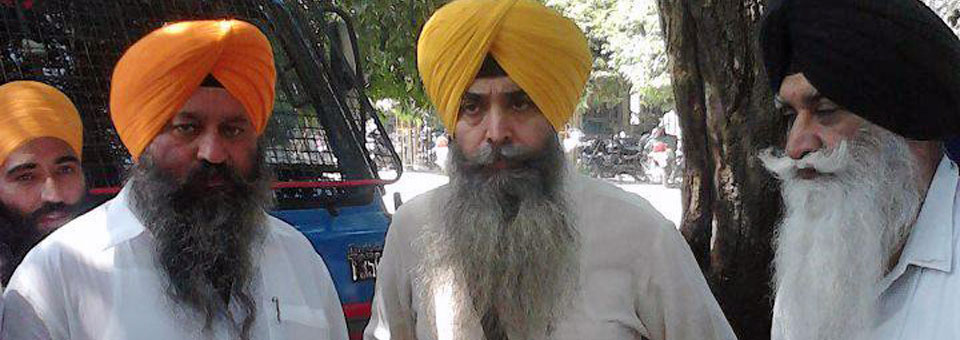From bleak and desolate midnight to bright and glittering daybreak; violence ends in bitterness, non-violence is followed by reconciliation. This cycle has been tormenting the Sikh psychology for the last 27 years since the attack on Darbar Sahib Amritsar.
A few days ago, I was talking to my construction contractor, a Sikh aged about 24 years, who had read about me somewhere. He asked why it was that I had stood up for the Sikhs all those years ago. The sorry part is that he has no understanding of the events of 1984 and it’s aftermath. Quite to the contrary, a young student named Jasneet Aulukh from California came to interview me about my views, the ordeal I went through and how I feel today. She is undertaking research on the events of 1984 for her thesis. She was fully aware of what happened and understood the tragic times the Sikhs have undergone and are still going through. She was accompanied on her visit to me by a professor from my university who was also a Sikh. Some years older than me, he told me afterwards that his own children were totally ignorant of the Sikh struggles despite living in Punjab, but that this young girl of the same age was fully aware.
Generally, I think the Sikhs in Punjab, especially the young have totally forgotten that today was the culmination of an attack on us, the Sikhs. The day of 6 June 1984 was the beginning of a defeat of our trust in the Indian system, a system for which our leaders with their own self-centered interests opted to align with in 1947 at the time of Indian independence. But this trust has been breached many times since 1947 and has spared none. Even the near relatives of sardar Bhagat Singh including his own brothers were made to face the onslaught of the Indian system. The latest victim, his sister’s son-in-law was killed in cold blood by the Indian Police during the present Sikh uprising of 1984, even though his role in any activity related with the struggle was never established, nor has it been since.
The events of June 1984 was the culmination of many struggles which the Sikhs have had to undergo since the independence of the Indian state. The political and religious ramifications are still to be debated, though 27 long years have passed us by. In Punjab and outside, the best effort has gone in to forgetting about this attack and it’s aftermath and to immerse ourselves in other issues which have little significance. Even those like me who stood up against the might of the Indian system are left to fend for themselves. The ritual of getting together on 6 June in Darbar Sahib is still going on, but the answers to that fall-out remain unanswered.
On this day I can only say that we as Sikhs still have a long way to go to feel appreciated and to gain the respect and pride with dignity which we aspire to. The attack was not to flush out people and take Sant Bhindrawale, but to humiliate and destroy our cultural and social pride for good. The Sikh demands were brutally crushed and the long struggle undergone since is still unfulfilled. The Punjab is the only state which doesn’t have its own administrative capital city and moreover is still sharing its high court with another state. These insults amongst so many have been the core points against which Sikhs have long stood up even though the significance of them is as important to other religious communities inhabiting Punjab. If we forgot our 1984, we will surely be leading ourselves into a dead end that is full immersion of our being in to this rotten system, a system which doesn’t safeguard the well being, dignity or pride of any people.





